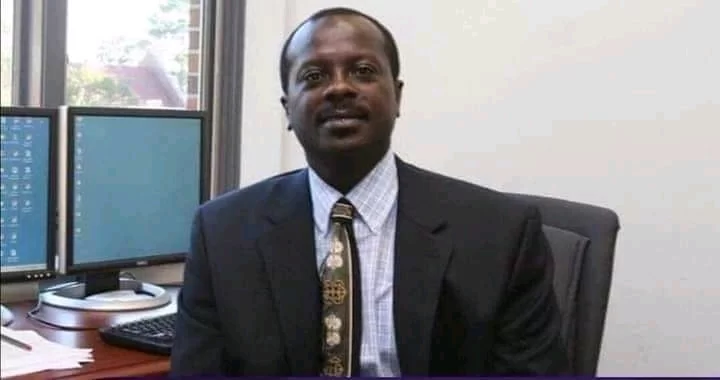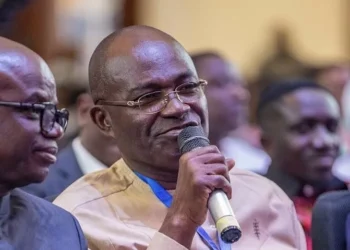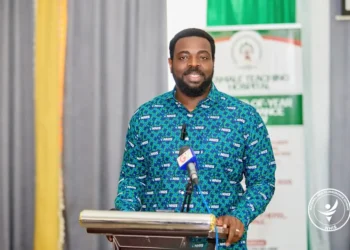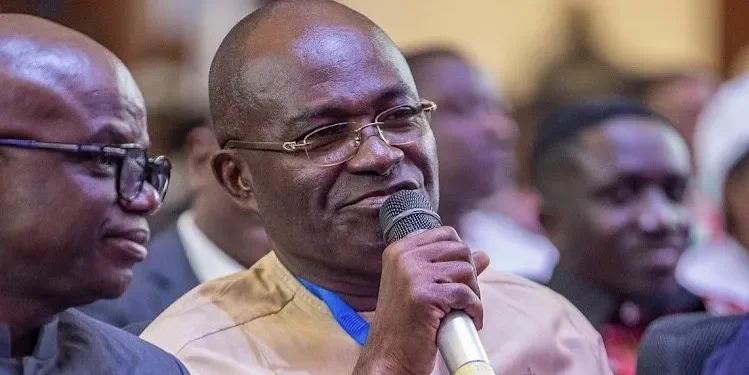Professor Stephen Kweku Asare, a Democracy and Development Fellow at the Ghana Centre for Democratic Development (CDD-Ghana) has lamented over what he termed as the systemic, structural, and cultural challenges that are jeopardizing the country’s democratic governance.
In an incisive critique of Ghana’s political system, Professor Asare pointed out a series of systemic issues that not only deter capable and principled individuals from engaging in politics but also create a fertile ground for the wrong elements to thrive.
This dynamic, according to Professor Asare, is detrimental to the country’s democratic and developmental aspirations.
“Persistent corruption and frequent scandals have eroded trust in our public institutions and created the perception that politics is a dirty game. This turns of good people.
“Too much polarization and partisanship have created a toxic public space where compromise and collaboration are hard to attain even on non-divisive issues. This turns of those who favor constructive and inclusive governance”.
Professor Stephen Kweku Asare, Democracy and Development Fellow at the Ghana Centre for Democratic Development
Lack of Transparency and Accountability
The Ghana Centre for Democratic Development Fellow further pointed out that the absence of transparency and accountability in political processes and decision-making further compounds the problem.
He posited that decisions made behind closed doors, a lack of clear and accessible information, and the failure to hold officials accountable have led to widespread cynicism and disillusionment among the populace.
This environment, he noted breeds impunity among those in power and despair among the citizens, who feel powerless to effect change.
Politics Serving the Few
Furthermore, Professor Asare asserted that the perception that politics primarily serves the interests of a connected few rather than the broader population contributes significantly to public disenfranchisement.
In his view, many Ghanaians feel that they are merely pawns in the electoral process, with their voices silenced and their needs neglected once elections are over.
This disenchantment, he argued has led to a significant disconnect between the electorate and their representatives, fostering a sense of betrayal and apathy.
Decline of Responsible Journalism
Highlighting the declining standard of the Fourth Estate, Professor Asare contended that the sense of disillusionment among citizens is exacerbated by the feeling among many that their interests and concerns are not adequately represented in the political arena.
He emphasized that the lack of genuine representation and advocacy for ordinary citizens’ issues has led to widespread apathy and disengagement from political processes.
“Many people feel let down by the Fourth Estate. They see their members “enjoying” and shaping political narratives, often through sensationalism and misinformation. They miss the days of the Legon Observer, Catholic Standard, etc”.
Professor Stephen Kweku Asare, Democracy and Development Fellow at the Ghana Centre for Democratic Development
Weak and Compromised Institutions
Moreover, Professor Asare expressed deep concerns over the perceived weakness and compromise of constitutional buffers such as the judiciary, the Commission on Human Rights and Administrative Justice (CHRAJ), and the National Commission for Civic Education (NCCE).

He explained that these institutions, which are supposed to provide checks and balances, are seen as either too weak or co-opted by political interests, adding that the lack of robust oversight allows for the abuse of power, further dissuading principled individuals from political engagement.
Political Parties and Power Capture
For political parties, the renowned constitutional activist stated that the loss of confidence in them, now viewed as captured by a few unscrupulous individuals focused solely on winning power and sharing the spoils, is another significant issue.
This perception, he noted has diminished the public’s trust in the various political parties’ ability to act in the public interest, adding that the dominance of power-hungry factions within parties has marginalized voices advocating for genuine reform and public service, further alienating potential reformers.
“People believe that the powerful are engaged in environmental crimes that endanger the whole populace. They find it difficult to trust politics and political leaders who put their health and safety at risk”.
Professor Stephen Kweku Asare, Democracy and Development Fellow at the Ghana Centre for Democratic Development
Inefficiency and Financial Losses in SOEs
Touching on the massive losses incurred by State-Owned Enterprises (SOEs), Professor Asare attributed them to personnel policies that prioritize loyalty over meritocracy.
This approach, he mentioned undermines the efficiency and effectiveness of SOEs, leading to financial losses and a lack of confidence in public sector management, adding that the public perceives these institutions as vehicles for patronage rather than engines of development.
To address these myriad issues, Professor Asare advocated for the “GOGO” (Good Governance and Oversight) initiative.
This initiative according to him calls for comprehensive reforms aimed at promoting transparency, strengthening institutions, encouraging civic engagement, and fostering a culture of accountability and inclusivity.
By addressing the root causes of disillusionment and disengagement, Professor Asare emphasized that “GOGO” aims to restore faith in the political process and attract individuals committed to serving the public good.






















